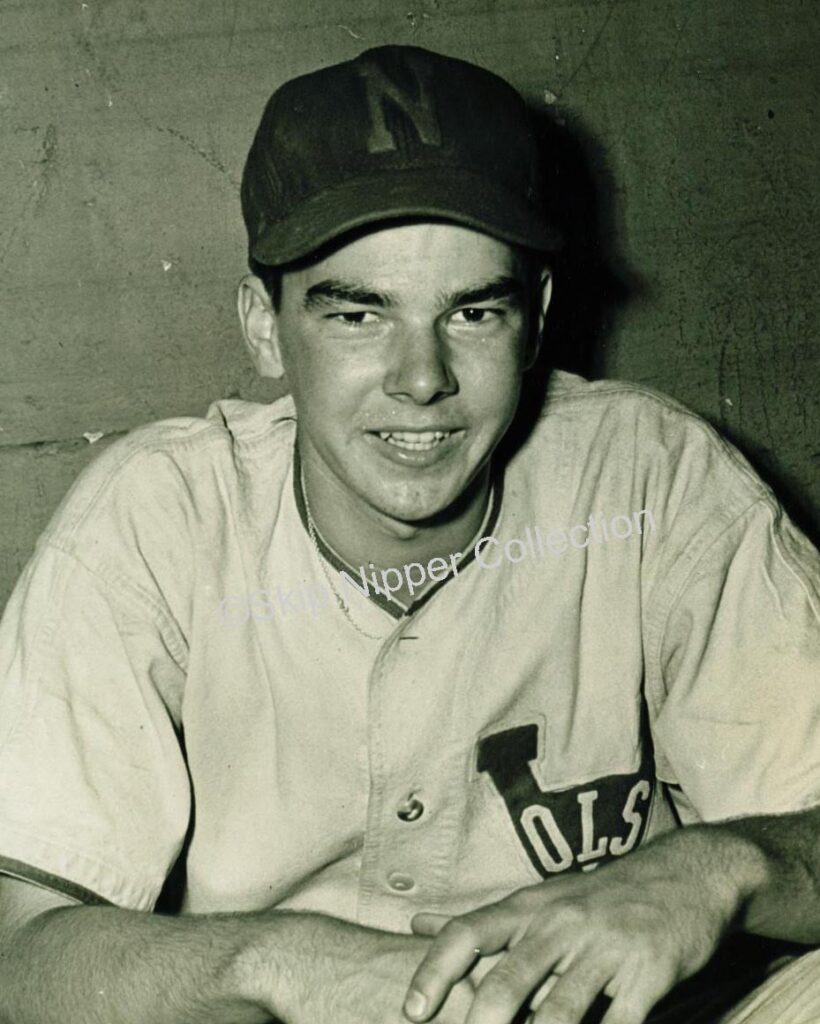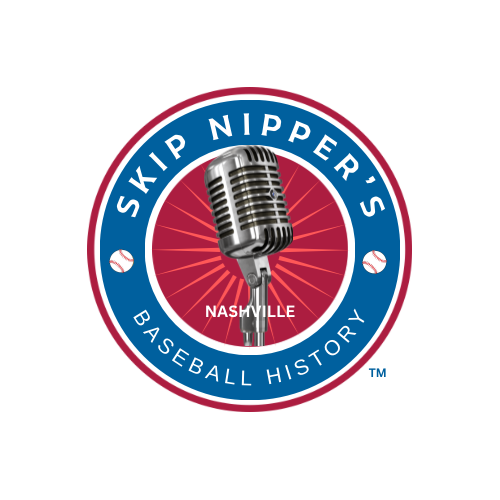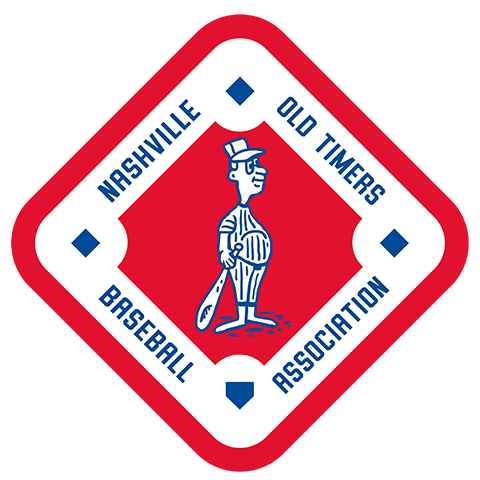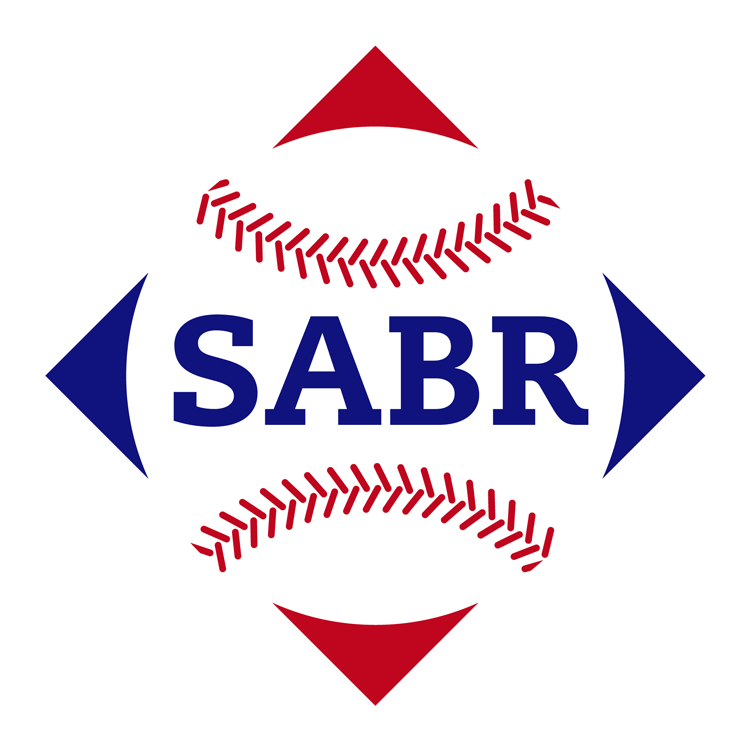On October 13, 1946 in a room at the Hotel Monteleone in New Orleans, Harold “Tookie” Gilbert’s mother pulled a slip of paper from a hat. Written on the slip was “Giants”, giving the New York club signing rights for the young player. His father, Larry Gilbert, manager, vice-president, and general manager of the Nashville Vols had suggested a price be set for the playing services of his son, and announced the plan for the drawing in their hometown.
Gertrude Gilbert determined the maximum bid would be $50,000.00, a surprisingly low price for the young star. He exexcelled at Jesuit High School and in American Legion ball and several major league teams were interested in signing the promising young slugger.

New York Giants scout Mel Ott, George Digby of the Boston Red Sox, Harry Jenkins of the Boston Braves, Mike Hauser of the New York Yankees, and Ray Kennedy of the Pittsburgh Pirates attended the event. When the Giants name was called, Ott immediately signed Gilbert to a contract and announced the 17-year-old would be sent to Minneapolis of the American Association. He added that at the 1942 World Series he asked Mrs. Gilbert for Tookie when the boy was only 13 years old.
“The Gilberts are people baseball should never forget,” Ott said. “They’re the most unselfish people I’ve ever known. And I sure feel happy about getting “Tooky” [sic].[1]
Born on June 4, 1929, the left-hand-hitting first baseman had been a phenom in high school in New Orleans and in Nashville amateur leagues where he played during the summer tenure of his father.
Two older brothers were players, too: Larry, Jr., who had passed away of a heart ailment in 1941, and Charlie who was 10 years older. His brothers had called him “rookie” when he was a child, and it came out “tookie” when he repeated their chiding. Larry, Jr. and Charlie continued to call him by the mis-pronounced name, and it stuck.
Beginning the 1947 season with Minneapolis, he was sent to Erie of the Mid-Atlantic League where he finished the season with a .333 average. In 1948, the youngest Gilbert played in Sioux City and had 26 home runs and batted .299 and his dad found a place for him on the Nashville roster the next season.
The senior Gilbert retired from managing after the 1948 season but remained as general manager. Even though Nashville was an affiliate of the Chicago Cubs, when he asked the New York Giants tto allow Tookie to play for the VoVols in 1949, they allowed it.
The first baseman helped to lead the Vols to the Southern Association championship by slugging 33 homers and hitting for a .334 average. On July 6th he became the 14th Nashville player to hit three home runs in one game.
Called up to the Giants in 1950, he debuted with a three-run home run and a single against Pittsburgh. He played in 113 games for New York that season, but his batting average was an anemic .220 and he was sent down to Minneapolis for 1951. He regained his batting power and hit 29 homers while driving in 100 RBI in 145 games for the Millers.
The next season in Oakland of the Pacific Coast League he stroked 37 homers and drove in 138 runs in 177 games. It appeared the star status that had been expected of him was back in gear, and he was called up to the Giants once again for 1953.
Stuck behind 1952 All Star first baseman Whitey Lockman, Tookie started in a handful of games and appeared in a total of only 70. His best game was on May 17 in St. Louis when he had three singles and a two-run home run for four RBI, but his season totals included only 27 hits and three home runs.
After contemplating leaving the game over the winter at his home in New Orleans, on February 13 he announced his retirement from professional baseball.
“This hasn’t anything to do with the Giants or anybody in particular,” Tookie said. “It’s just that baseball’s too funny to depend on, and I got to look ahead. I’ve got (wife) Jean and Harold to worry about with another baby on the way.
“I guess I could make out like I’m going for a long time. But I got to look ahead. When I came home this Fall, I was disappointed.”[2]
He went into the paint business, but the tug from baseball remained. After an almost impossible length of retirement before making a comeback, Tookie played for his hometown New Orleans Pelicans in 1959. On August 30 he hit his last professional home run in Memphis against the Chicks, give him 22 for season. He added 80 RBI and a .261 average to his totals, but at the end of the season he retired once again.
He was elected sheriff of Orleans County in 1962, and re-elected in 1966. He passed away on April 23, 1967 of apparent heart failure. He was 38 years old.[3]
Sources
In addition to the sources cited in the Notes, the author consulted ancestry.com, baseball-reference.com, newspapers.com, retro-sheet.org, find-a-grave.com, and the following:
Jack Morris, “Larry Gilbert,” SABR Bio-Project, https://sabr.org/bioproj/person/94426bef, accessed February 12, 2019.
Notes
[1] Bill Laffler, “Tooky’ Gilbert Drawn by Ott For His Giants,” Nashville Tennessean, October 14, 1946, 9.
[2] “Tookie Gilbert Hangs Up Spikes,” Brooklyn Eagle, February 14, 1954, 22.
[3] “Giants “won” Tookie Gilbert in hat draw,” Bob Lemke’s Blog. http://boblemke.blogspot.com/2014/04/giants-won-tookie-gilbert-in-hat-draw.html, retrieved February 12, 2019.
© 2019 by Skip Nipper. All Rights Reserved.



